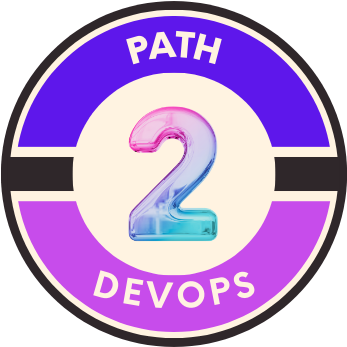Understanding the Fundamentals
In today’s rapidly evolving digital landscape, businesses are continually seeking ways to stay ahead of the competition. One proven strategy is to embrace DevOps — a software development approach that combines the practices of development and operations. But what does it take to embark on this transformative journey?
At its core, DevOps requires a solid foundation in software development, system administration, and operations. Without a clear understanding of these fundamentals, businesses risk losing out on the benefits that DevOps can bring.
Mastering the Key Steps
To unlock the full potential of DevOps, there are several key steps that need to be taken. First and foremost, learning Linux is essential, as it forms the backbone of many modern systems. Familiarizing oneself with Linux will provide the necessary skills to navigate the command line and perform essential tasks.
Cloud platforms such as AWS, Azure, and GCP are also integral to the DevOps journey. These platforms offer scalability, flexibility, and cost-efficiency, enabling businesses to accelerate their software development and deployment processes. Understanding cloud platforms will empower businesses to take full advantage of the opportunities they offer.
Embracing DevOps Practices and Tools
Containerization and orchestration are two critical practices to adopt on the road to DevOps success. Docker, a popular containerization platform, allows for the creation and deployment of lightweight, portable software packages. Kubernetes, on the other hand, enables the management and scaling of containerized applications with ease.
Furthermore, embracing Continuous Integration and Continuous Deployment (CI/CD) practices is vital to streamline the software delivery pipeline. Tools like Jenkins and GitLab CI/CD automate the building, testing, and deployment of software, ensuring a smooth and efficient process.
Infrastructure as Code (IaC) tools like Terraform enable businesses to define their infrastructure in a declarative manner, removing the need for manual configuration and reducing the risk of human error. Monitoring and logging tools such as Prometheus and the ELK stack provide valuable insights into system performance and help identify and troubleshoot issues promptly.
Finally, businesses must prioritize security best practices to protect their systems and data. This includes implementing secure coding practices, performing regular vulnerability assessments, and adhering to industry standards and regulations.
Elevating Collaboration and Staying Updated
Collaboration is a crucial aspect of successful DevOps implementation. Encouraging cross-functional teams to work together fosters innovation and rapid idea iteration. By breaking down silos and creating a culture of collaboration, businesses can harness the collective expertise of their workforce and achieve remarkable results.
Additionally, staying updated with the latest trends, tools, and practices is essential in the fast-paced realm of DevOps. Attending conferences, participating in online communities, and pursuing relevant certifications can help businesses stay ahead of the curve and continuously improve their DevOps capabilities.
The Final Destination
Embarking on the journey to DevOps is not without its challenges, but the rewards are well worth the effort. By embracing the fundamentals, mastering key steps, and leveraging the power of DevOps practices and tools, businesses can unlock new levels of productivity, agility, and innovation. Collaboration, staying updated, and earning relevant certifications complete the journey, ensuring that businesses are well-equipped to thrive in the digital age.
